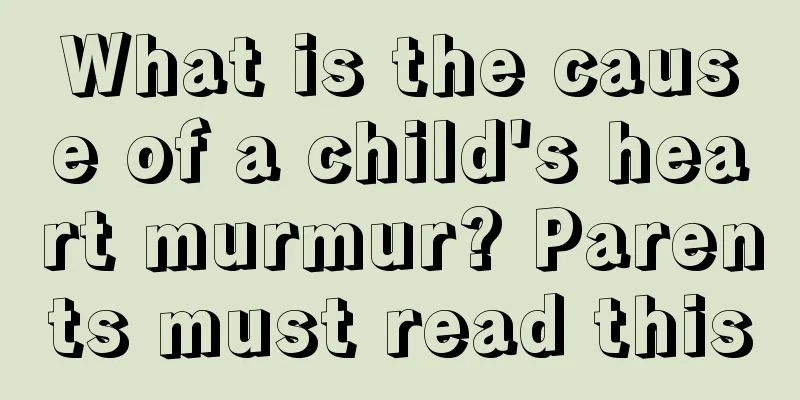Reasons why baby vomits sour milk

|
Many parents often find that their babies spit up milk when feeding. Generally speaking, the milk that babies spit up is colorless and odorless. Some parents may feel that the milk their babies spit up has a sour taste. This phenomenon confuses many people. What is wrong with the child? Let me introduce it to you. Spitting up is a common phenomenon in infants. There are two reasons for this: one is that it is a symptom of systemic or gastrointestinal disease; the other is that the anatomical and physiological characteristics of the infant's gastrointestinal tract make vomiting prone to occur. Generally speaking, vomiting caused by the second reason is more common. The milk taken in through the mouth first passes through a tube called the esophagus and then enters the stomach. The stomach has two doors, one is connected to the esophagus called the cardia, which is the entrance of the stomach, and the other is connected to the intestine called the pylorus, which is the exit of the stomach. The tension of the esophageal muscles in infants and young children is low, which can easily cause expansion. At the same time, the peristalsis is relatively slow, so food can easily accumulate. The cardia is relatively loose and not tightly closed, so it can be easily opened by food. When there is a little more food in the stomach, it can break open the cardia and flow back into the esophagus. The pylorus is tightly closed and can be easily stimulated by food to cause spasm, which makes the exit resistance greater, and food passes slowly or with difficulty. Food then flows back from the pylorus to the cardia and breaks out. In addition, the baby's stomach does not hang down like that of older children and adults, but is in a horizontal position. This can reduce the capacity of the stomach, store less food, and also make it easier for it to return to the cardia. Due to the existence of the above factors, even under normal circumstances, if you eat too much and lie down immediately after feeding, the milk can easily rush open the cardia and return to the mouth through the esophagus, causing vomiting. If a child spits up milk occasionally and is in good spirits, he or she may not be sick. If the child vomits several times in a row and vomits every time during feeding, you should pay attention to whether the child has a fever, the condition of his bowel movements, any changes in his spirit, etc. There may be problems with the gastrointestinal tract itself, or there may be lesions in other systems. You should take your child to the hospital for examination. In daily life, when you are feeding your baby, you must remember to let the baby burp and pat the baby's back after feeding. This will help the baby avoid spitting up milk. The above is an introduction to the sour taste of baby spitting up milk. |
<<: Is it better to use a cold towel or a hot towel when a child has a fever?
>>: Can I clean my baby's ears?
Recommend
What are the symptoms of mycoplasma and chlamydia infection in children?
The symptoms of mycoplasma infection in children ...
Should we give up on fetal lymphangioma?
Before the fetus is born, some problems with the ...
What should I do if my baby’s urinary area is itchy?
Urinating is a natural physiological reaction of ...
Why should you change your pacifier so often?
In fact, with the continuous development of today...
Normal range of rectal temperature in children
Humans are called homeotherms because their body ...
Child has stomachache at night
If there are children at home, parents will pay c...
Can babies with gastroenteritis drink milk powder?
Babies have weak immunity and the types of food t...
Is nebulization effective in treating children’s cough?
Whenever the seasons change and the weather chang...
Fever after rash in infants
Children often suddenly develop some diseases whe...
The difference between choking and spitting up milk, prevention is the most important
Choking and spitting up are very common in infanc...
Can children drink Astragalus and lean meat soup?
Huangshi is a very good tonic for the human body....
Why does the baby's leg bones make noises when he exerts force?
The health of the baby will make parents very wor...
What to do with phimosis in children and how to treat it
The most common method for treating phimosis in c...
Can babies eat longan? Parents should be more careful in the future
Longan, also known as lychee, is a very good food...
How to detect autism in young children?
Parents of children with autism should pay attent...









